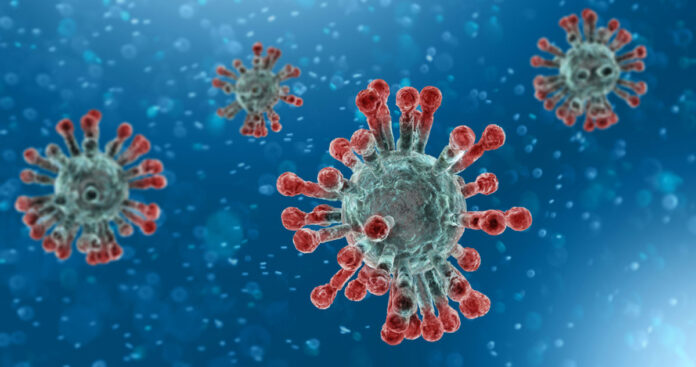A new Covid-19 variant had created havoc during the second wave of the Covid-19 pandemic in India has now spread to nealy 80 countries. The Delta variant, or B.1.617.2, was first recognized in India in October 2020 and has now become the dominant strain in the UK.
Presently, the Delta variant accounts for more than 90% of cases in the UK, including the US, where the number of Delta variant cases is rapidly increasing, from 10% of the total Covid-19 cases in the past week to 20% this week.
Chief medical advisor to the White House, Dr. Anthony Fauci, has labeled the variant as the “greatest threat” to the country’s attempt to eliminate Covid-19.
What is the Delta variant?
When the coronavirus broke out in China’s Wuhan, that first strain was a “wild type” virus. And this strain was used by scientists worldwide to develop testing kits, treatment plans, and vaccines.
It is the nature of viruses to mutate, but not all mutations are severe and generally do not require countries to reconsider their public health measures. The strains of concern Alpha, first identified in the UK, Beta in South Africa, Gamma in Brazil and Delta are all different from several other variants for this exact reason.
The Delta variant has specific significant mutations in the spike protein of the virus. These pointy elements give it the shape of a crown, so it’s called the coronavirus. These spikes are like hooks that find the receptors in a human cell in order to link. Studies have revealed these spikes hook onto receptors called ACE-2 and once these spike proteins can unlock the cells, the disease spreads by replicating the virus’s genetic code.
Some key mutations in the Delta variant, such as E484Q, L452R, and P614R, make it easy for the virus’s spikes to attach to ACE-2 receptors. Meaning it can infect and replicate faster and even elude the body’s natural disease-fighting immunity more effectively.
According to the WHO, the spike protein mutations make the Delta variant the “fastest and fittest” variant. As a result, the disease caused by this variant might also show different symptoms other than viral mutations. Those infected with the Delta variant mostly complain bout headaches, sore throat, and a runny nose, instead of cough and loss of taste or smell like the most common symptoms.
Is the Delta variant more transmissible?
Quantitative data sciences Associate director at the University of Michigan Rogel Cancer Center, Dr. Bhramar Mukherjee, says most studies indicate that the Delta variant is 50-60% more transmissible than the original variant.
In simple words, if a person infected with the original variant could infect nearly two people, a person with the Alpha strain could infect four people. With the Delta variant, one person could infect almost seven other people. It’s important to note that these are just the averages, not absolute numbers; one Delta carrier might infect zero people or 25.
That is why its higher reproduction number infected entire families in crowded Indian cities like Delhi and Mumbai. It also explains the surge of cases in the country in the month of April and May.
Can vaccines protect against the Delta variant?
Dr Gautam Menon, professor of physics and biology at Ashoka University in Sonipat explains, “it is reasonably certain that the Delta variant also exhibits some immune escape, although estimates vary as to the extent.” For example, single doses of Covid-19 vaccines, are only 33% effective against the virus, according to data from the UK.
But it is anticipated that those who are fully vaccinated are protected against Covid-10 disease. Pfizer’s mRNA vaccine is 96% efficacious, and the AstraZeneca vaccine 92% effective against hospitalizations after two doses, according to data from PHE. The PHE says these are comparable to efficacy against the Alpha strain.
This also means that completely vaccinating a large part of the population is crucial for countries where the Delta variant is prevalent. However, for countries like the US, where almost half of the population is completely vaccinated, scientists consider a varied impact of the Delta strain.
What is Delta Plus?
The Delta variant has amplified a new mutation of a type first found in the Beta variant. It is a sub-lineage of the Delta variant, first detected in India and now has acquired the spike protein mutation called K417N. Although not official by the WHO, Scientists worry that the mutation, combined with other features of the Delta variant, could make it more transmissible.
Shahid Jameel, a top virologist in India, said that Delta Plus could also reduce the effectiveness of a cocktail of therapeutic monoclonal antibodies. This strain could also potentially lead to vaccines being less efficient. India has officially labelled Delta Plus a “variant of concern,” though after a great deal of uncertainity.
Menon says that the Delta Plus variant is not yet a cause for worry, but would be “if it began to replace the existing variants.” “Currently, there is no evidence that this is the case,” he says, “so there is no cause for immediate worry, but this may change and we should be watchful for this.”
According to reports by Reuters, the Delta Plus variant has been detected in 11 countries, including the UK, US, Canada, China, Japan, India, Nepal, Poland, Portugal, Russia, Switzerland and Turkey.
Studies are going on in India and worldwide to test the efficiency of vaccines against this mutation. However, there are concerns that Delta Plus would trigger the third wave of Covid-19 in India.
“The mutation itself may not lead to the third wave in India — that also depends on Covid-appropriate behavior, but it could be one of the reasons,” said a scientist with the state-run Indian Council for Medical Research, Tarun Bhatnagar.



